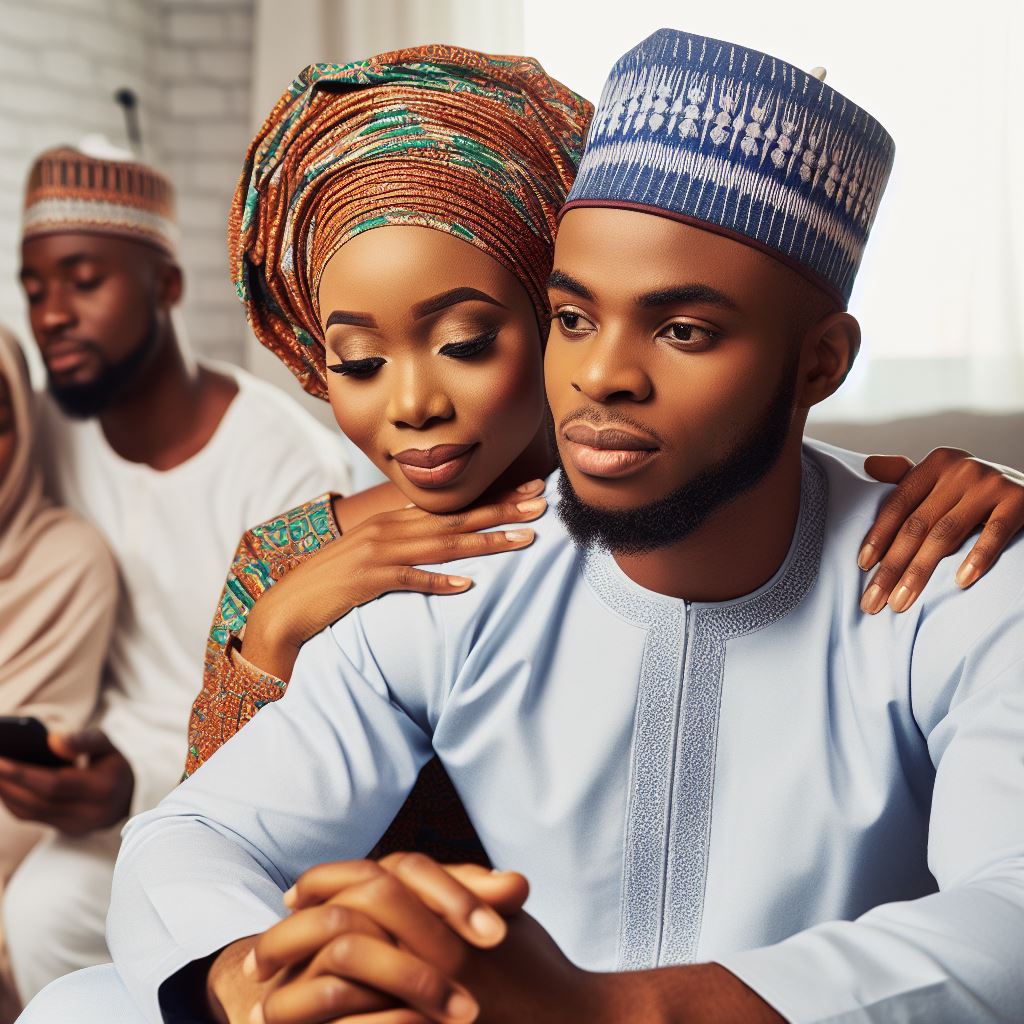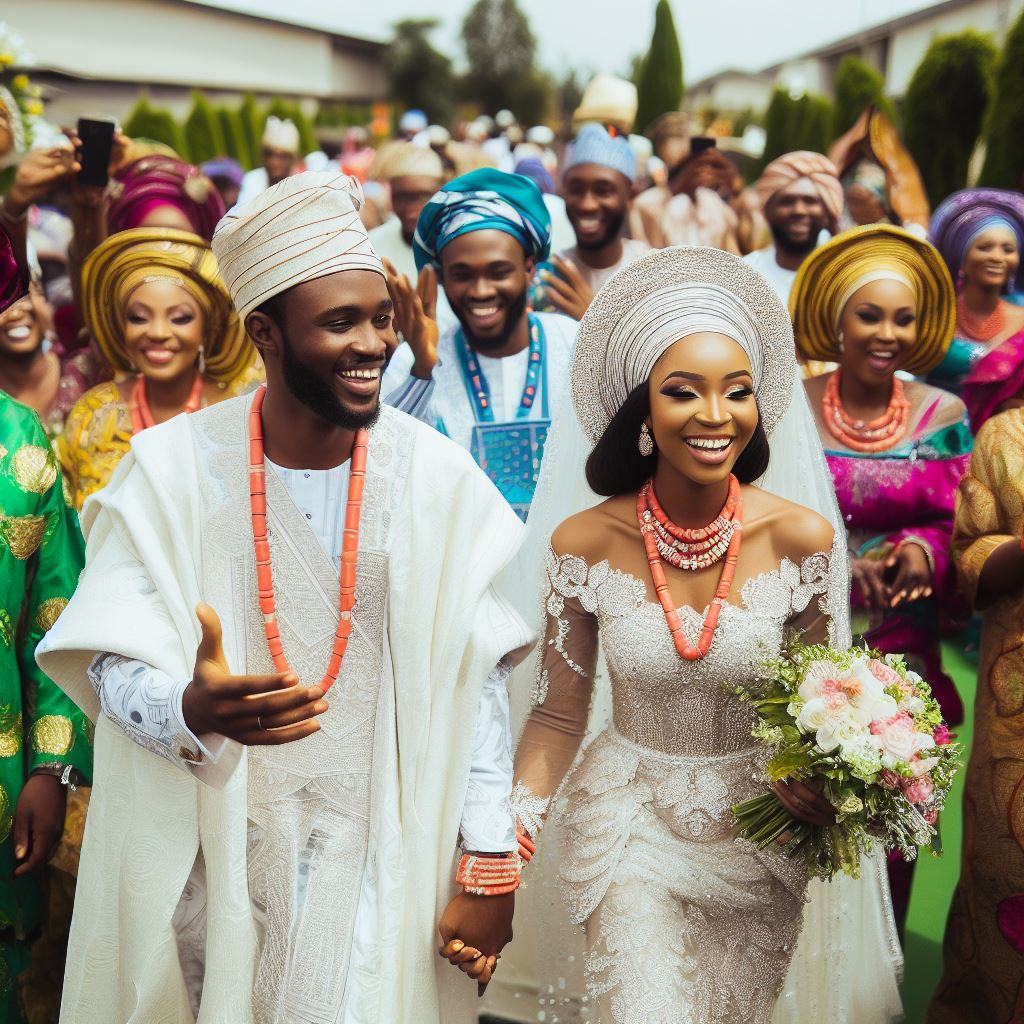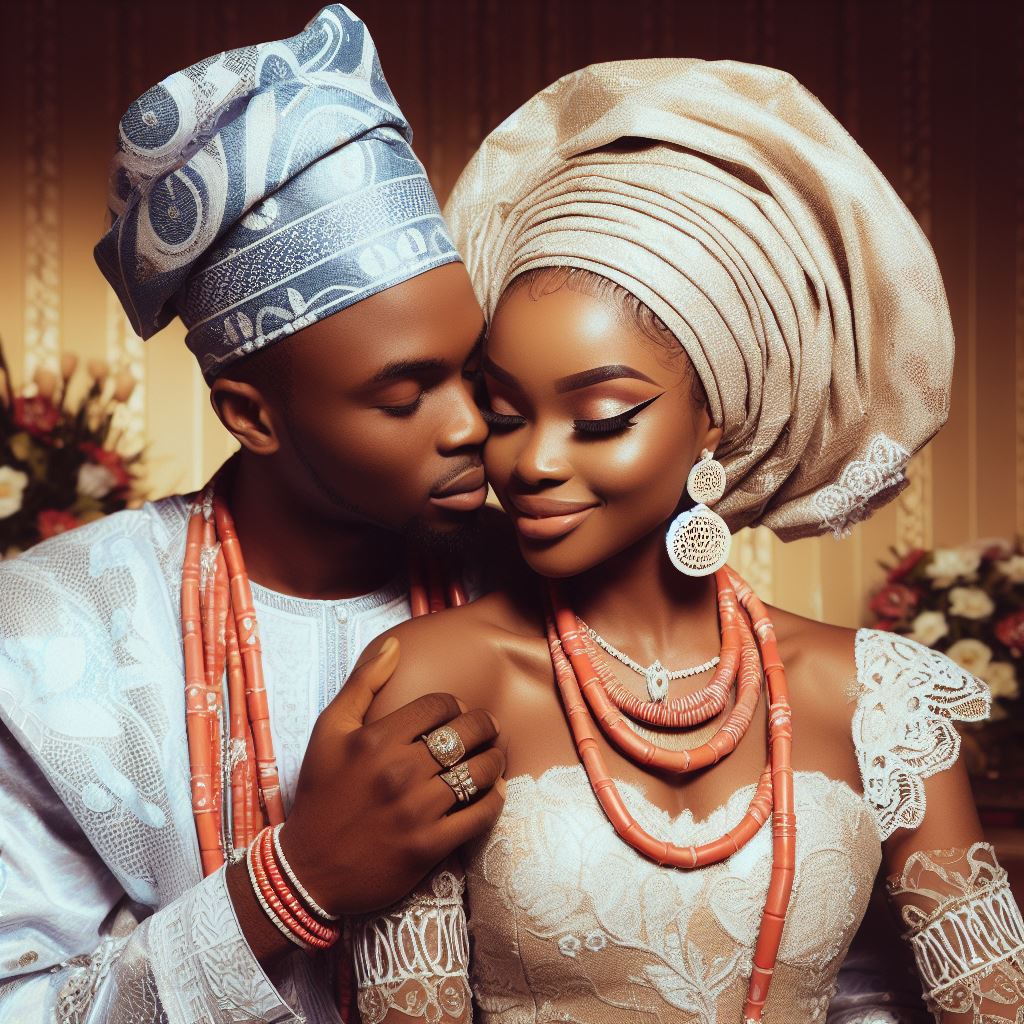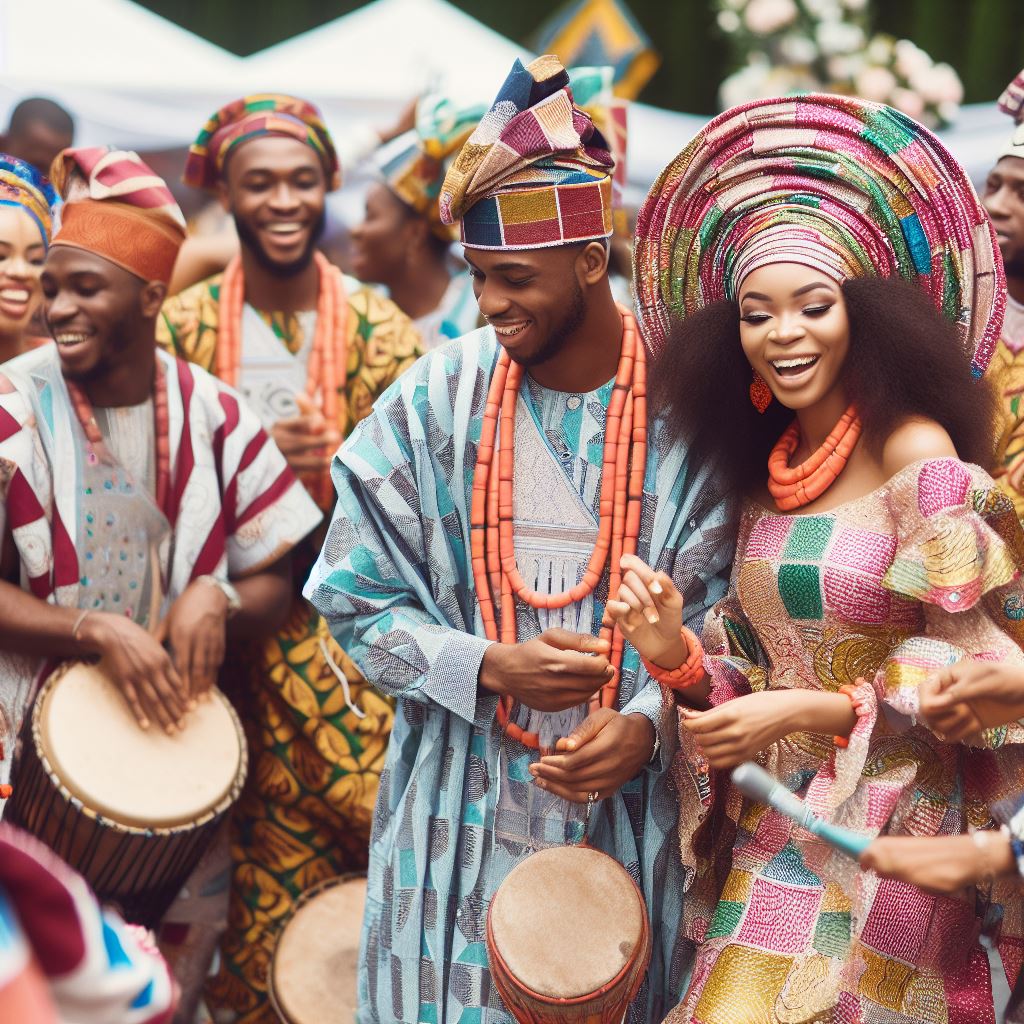Introduction
Definition of polygamy
Polygamy is the practice of having multiple spouses simultaneously.
Understanding polygamy in Nigeria is important due to its cultural significance. This section provides an overview of its historical and modern context.
Polygamy, commonly known as having multiple spouses, is a practice deeply rooted in Nigerian culture.
Importance of understanding polygamy in Nigeria
Understanding polygamy in Nigeria is crucial for comprehending the dynamics of relationships and family structures.
To fully comprehend the topic, we must consider both the historical and modern context of polygamy in Nigeria.
Overview of the historical and modern context
Historically, polygamy was widely practiced in Nigeria as a means of solidifying alliances and strengthening family ties.
In the modern context, polygamy is influenced by factors like religion, social status, and personal choice.
Religion, especially Islam, plays a significant role in the acceptance and practice of polygamy in Nigeria.
Social status and wealth often determine a person’s ability to maintain multiple spouses and support their families.
Understanding the historical and modern context of polygamy in Nigeria allows for a deeper understanding of its complexities.
This section aims to shed light on the dynamics of polygamy in Nigeria, its cultural significance, and its implications for individuals and families.
Through exploration of historical and modern factors, we can gain insights into the continued practice of polygamy in Nigeria.
Read: Navigating the First Year: Advice for Quick Marriages in Nigeria
Historical Context of Polygamy in Nigeria
Traditional cultural practices and values
Polygamy has a deep-rooted historical context in Nigeria, shaped by traditional cultural practices and colonial influences.
The acceptance and prevalence of polygamy have been influenced by various factors throughout history.
In pre-colonial Nigerian societies, polygamy played a significant role. It was a widely accepted practice that allowed men to have multiple wives.
This practice was influenced by cultural values, where large families were considered a symbol of wealth, power, and prestige.
Polygamy was seen as a way to strengthen alliances, build social networks, and increase labor resources.
Several factors influenced the acceptance of polygamy in pre-colonial societies.
Economic factors played a crucial role, as men with more wives had access to more labor for agricultural activities and other productive tasks.
Additionally, the desire to have male children who would continue family lineage and inherit property reinforced the practice of polygamy.
Influence of colonization on polygamy
However, the colonization of Nigeria by European powers brought significant changes to the traditional practice of polygamy.
Colonial powers introduced monogamy, the practice of having only one spouse, and discouraged polygamy. This was part of the broader efforts to impose Western values and norms on Nigerian societies.
Despite the introduction of monogamy, polygamy persisted in Nigerian cultures. It was seen as a resistance to colonial powers and an assertion of cultural identity.
Many Nigerians believed that polygamy was an integral part of their cultural heritage and resisted attempts to abolish it.
Polygamy continued to be practiced, although often not openly, as a way to preserve cultural traditions and maintain societal and familial structures.
In modern Nigeria, polygamy remains prevalent, although with some changes.
Monogamous marriages are now more common, especially among the urban population, but polygamy persists, primarily in rural areas and among specific ethnic groups.
Cultural beliefs and values, as well as religious and social factors, contribute to the persistence of polygamy.
In closing, the historical context of polygamy in Nigeria is multifaceted.
Traditional cultural practices and values, along with colonial influences, have shaped the acceptance and persistence of polygamy.
Understanding the historical background is crucial to grasp the complexities surrounding polygamy in Nigeria today.
Read: Breaking Down ‘Married at First Sight’: Love or Entertainment?
Modern Context of Polygamy in Nigeria
Legal Status of Polygamy in Nigeria
- Recognition and Regulation: The Nigerian legal system recognizes and regulates polygamy, permitting men to marry multiple wives.
This legal recognition varies across regions and religious beliefs. - Differences between Islamic and Customary Law: The practice of polygamy differs under Islamic and customary law.
Islamic law allows men to have multiple wives, provided they can support them equally. Customary law may vary by ethnicity and region.
Social Dynamics of Polygamy in Contemporary Nigeria
- Factors Contributing to the Practice: Several factors contribute to the continued practice of polygamy in Nigeria.
Cultural traditions, religious beliefs, and the desire for large families are some driving forces. - Changing Attitudes towards Polygamy in Urban Areas: Urbanization has brought about shifting attitudes toward polygamy.
In urban areas, there is a growing preference for monogamous marriages, influenced by modernization, education, and economic factors.
Economic Implications of Polygamy
- Impact on Women and Children: Polygamy can have complex economic effects on women and children.
While some benefit from shared responsibilities within a larger family, others may face financial challenges.
The economic impact varies based on factors like education and economic status. - Challenges and Benefits: Polygamy presents both challenges and benefits for families.
It can strain financial resources, but it also offers support networks within extended families.
Balancing these aspects is essential for understanding the modern context of polygamy in Nigeria.
These implications often reflect broader social and gender dynamics, and they can evolve over time as societies change and adapt.
Read: How ‘Married at First Sight’ Reflects & Challenges Nigerian Values
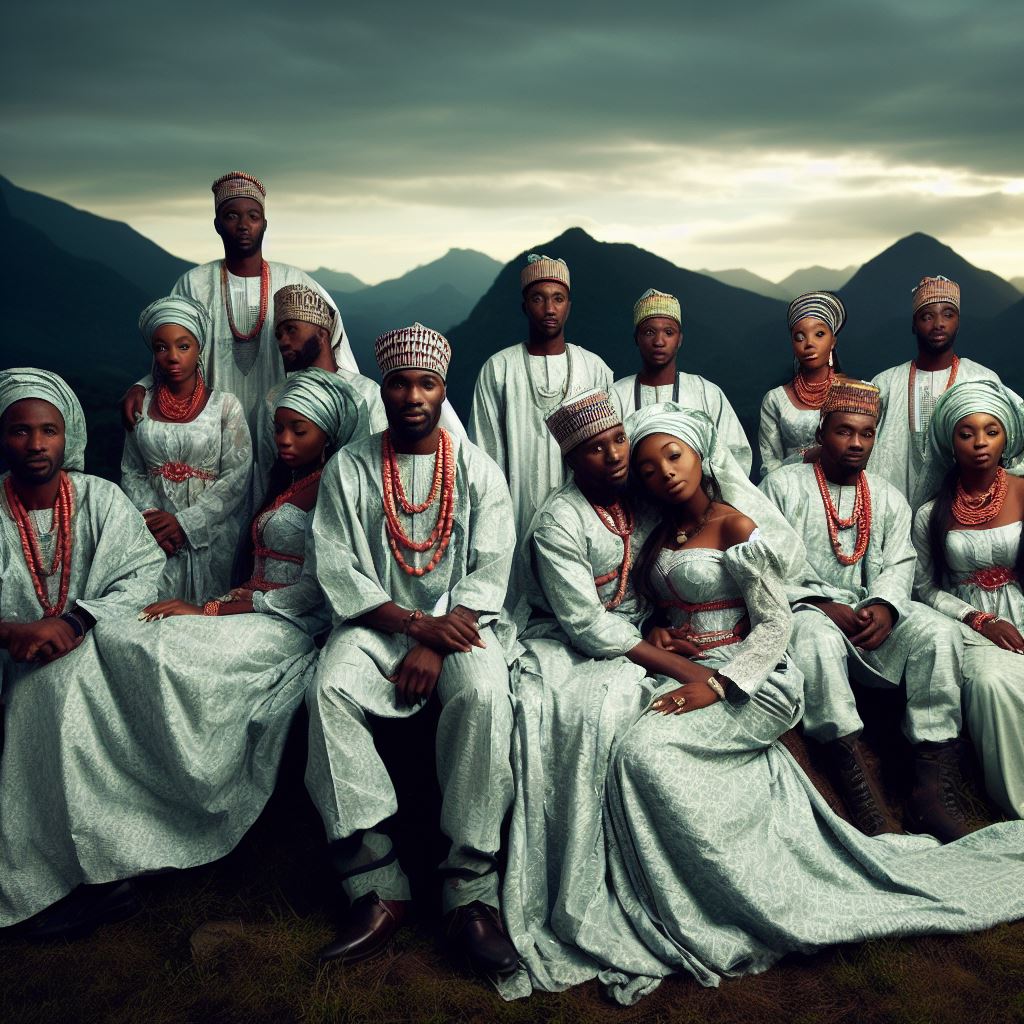
Controversies and Debates Surrounding Polygamy in Nigeria
Gender equality and women’s rights perspectives
Women in polygamous marriages in Nigeria often encounter challenges associated with the practice.
Women in polygamous unions often encounter issues related to unfair distribution of resources, lack of emotional support, and limited decision-making power within the family unit.
Patriarchal norms and beliefs underlie these challenges, favoring men’s interests over women’s.
However, there are ongoing efforts to address these challenges and advocate for women’s empowerment and agency within polygamous unions.
Organizations and activists work towards reforming traditional practices, promoting gender equality, and providing support services for women in polygamous marriages.
These efforts aim to improve women’s access to education, economic opportunities, and healthcare, thereby enhancing their overall well-being and increasing their agency in decision-making processes.
Religious considerations
Polygamy finds its roots in religious teachings, particularly in Islam.
Islamic doctrine allows men to have multiple wives under specific conditions, such as treating each wife equally and providing for their needs.
This religious endorsement has contributed to the proliferation of polygamous marriages within Muslim communities in Nigeria.
However, debates within Islamic circles persist on the interpretation and application of these teachings, with some advocating for restrictions and greater emphasis on monogamy.
Christian perspectives on polygamy and monogamy vary within different denominations.
While some Christian groups condemn polygamy as incompatible with their interpretation of biblical teachings, others adopt a more flexible approach recognizing cultural norms and historical practices.
These differences in beliefs have led to ongoing debates within Christian communities, further complicating the issue of polygamy in Nigeria.
Public opinion and societal norms
Cultural identity and societal norms significantly influence views on polygamy in Nigeria.
Some ethnic groups deeply embed polygamy in traditional practices, viewing it as a symbol of wealth, status, and fertility.
These communities often view polygamy as a way to preserve cultural heritage and maintain family lineage.
However, the advent of globalization has brought new perspectives and influenced societal norms regarding polygamy.
The exposure to different cultures, ideologies, and global movements advocating for gender equality has led to questioning and reevaluation of traditional practices.
As a result, some Nigerians challenge polygamy’s acceptance, deeming it outdated and discriminatory against women.
Debates about polygamy in Nigeria focus on gender equality, women’s rights, religious factors, and cultural identity influenced by globalization.
To address these controversies, we need a comprehensive approach involving legal reforms and religious dialogues.
Additionally, educational initiatives should promote gender equality and human rights for all individuals in polygamous unions.
Read: Finding True Love: Do Shows Like ‘Married at First Sight’ Help?
Conclusion
Recap of Historical and Modern Context
We’ve embarked on a journey through the historical and modern facets of polygamy in Nigeria, revealing its complexities and significance.
Acknowledgment of Controversies
We’ve acknowledged the multifaceted controversies and debates that surround polygamy. These encompass gender equality, religious considerations, and the impact of globalization on cultural identity.
Encouragement for Continued Dialogue
In the spirit of progress and unity, we encourage ongoing dialogue and understanding among Nigerians.
This dialogue should foster solutions that respect diverse perspectives while upholding the principles of human rights and equality.
Polygamy in Nigeria is a topic that continues to evolve and shape society, and it is through open and respectful discourse that we can navigate its future with wisdom and compassion.

